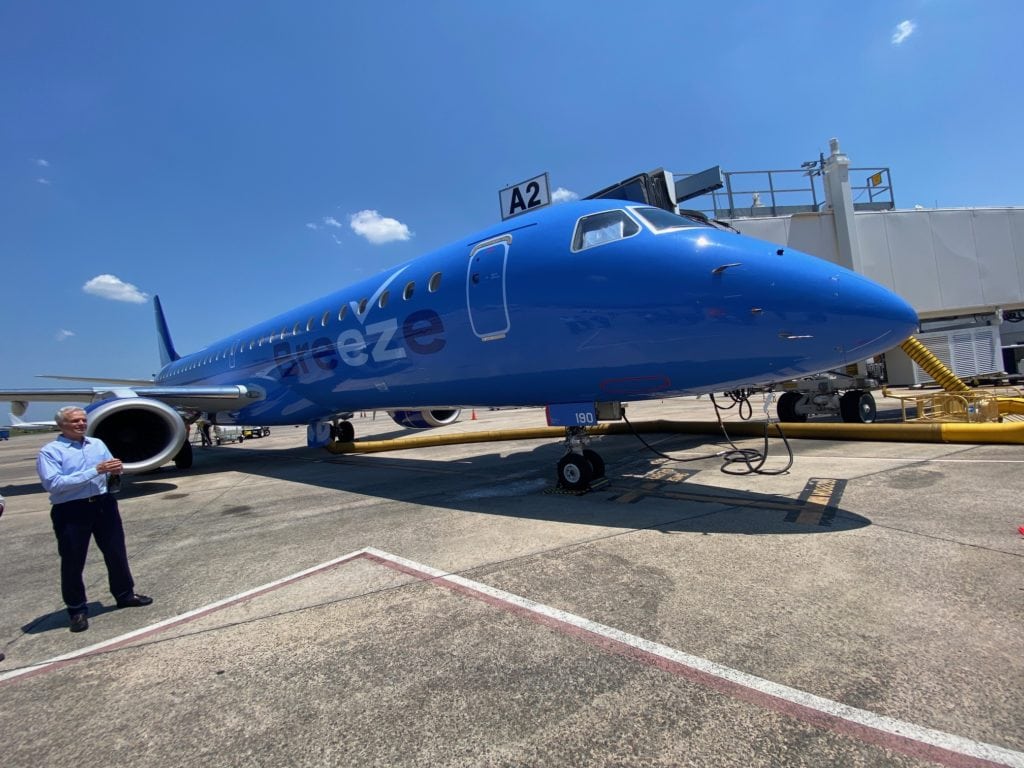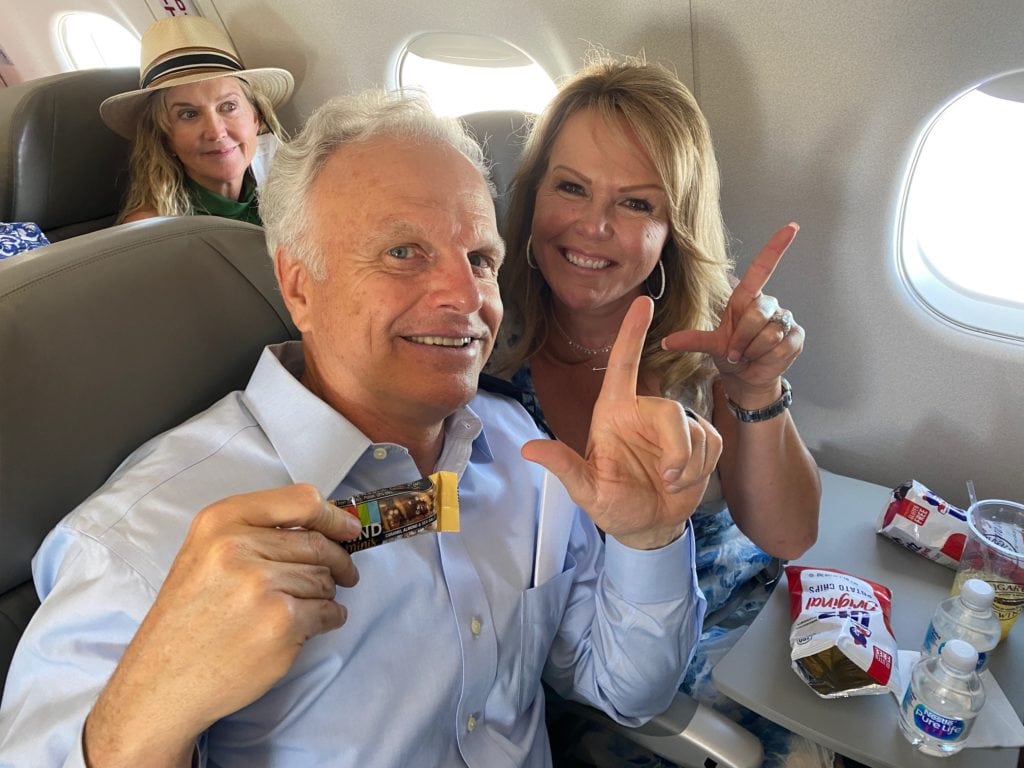[VIDEO] US Startup Breeze Airways Completes First Flight
Share

Chris Sloan, founder of The Airchive, reports on Breeze Airways’ inaugural flight. Breeze is the latest low-cost carrier (LCC) in the US and was founded by industry veteran David Neeleman, who also brought WestJet, JetBlue and Azul to life.
After two years in the making, and just one month after fellow US startup Avelo Airlines completed its first flight, Breeze Airways took to the skies with an inaugural round-trip service between Tampa Bay, Charleston and Hartford, Connecticut using an Embraer E195.
Breeze’s business model is to connect underserved small- and medium-sized cities with leisure destinations. Although it’s estimated that COVID-19 caused US airlines to lose approximately $35 million in 2020, Breeze Airways’ founder, David Neeleman, explained, “Breeze makes sense given the deal we have on airplanes, the availability of staff and pilots, and the need in certain markets that were actually being abandoned before the pandemic.”
The carrier has an order for 80 Airbus A220 aircraft and will operate Embraer E190 and E195 jets on flights that are less than two hours long. By July, it intends to operate 39 nonstop routes between 16 cities using 13 surplus aircraft from Neeleman’s Brazil airline, Azul, which were purchased at 25% of the cost of a new jet. Additional E-Jets have been leased from Nordic Aviation Capital on a Power by the Hour basis.
Neeleman is aware that the low cost of its aircraft make low fleet utilization a possibility for the airlines’ thinner markets. “We don’t need to fly 12 hours a day,” he said. “We can fly 4-5 hours a day on average and do fine.” Breeze’s aircraft will stay on the ground during off peak days, which is a luxury many fellow US carriers can’t afford.
Furthermore, Breeze claims that 95% of its planned point-to-point routes have no nonstop competition. The carrier’s four bases will be located in Tampa Bay, Florida; New Orleans, Louisiana; San Antonio, Texas; and Norfolk/Virginia Beach, Virginia. “The airline industry needs Breeze because when we go into a market, we’ll increase the size of the market by twenty times,” Neeleman said. “There’s a lot of people who will travel that wouldn’t have traveled otherwise.”
The “Anti-Jerk Airline”: Breeze’s Pitch to Passengers
In addition to low fares and direct flights, Neeleman believes Breeze’s selling point is that it is “the world’s nicest airline.” However, he expects the “nice-ness” to go both ways: “If we just tell our people, “Hey, we’re the nicest airline, so you better be nice,” then it sets an expectation right up front for everybody,” he said. “Maybe we’re the anti-jerk airline.”
The airline currently offers two different fares, “Nice” and “Nicer”. “Nice” will cover the seat with a pitch between 29- and 31-inches, and a personal carry-on item. The “Nicer” fare will see passengers gain extra legroom, with a seat pitch from 32- to 39-inches, a drink and snack, priority boarding and one carry-on bag. Snacks will include Kind bars and Utz chips. Neeleman quipped, “The fastest way to put butts in seats is to put Utz in seats!”
Breeze’s “Nicest” fares will arrive with the introduction of its first A220, which is set to be equipped with first-class seats, in-flight connectivity and other luxurious in-flight service touches that are yet to be announced.

Instead of embedded seatback screens, Breeze has opted for a wireless in-flight entertainment solution provided by Anuvu, formerly Global Eagle. The airline also plans to offer a super mobile application that ties flight reservations in with offers for dinner reservations, Airbnb rentals, airport transfers, destination attractions and tickets for local entertainment.
Breeze’s modus operandi is to make things as convenient as possible for passengers. Neeleman said, “We’ll have few people on the ground … that will be a more digital seamless process.” Customers will be expected to check in, drop off their bags and scan boarding passes themselves.
In the event of a cancelled ticket, Breeze will provide a credit that’s valid for 24 months, and won’t charge any change fees. Luggage costs $20 per bag for up to three bags, regardless of whether they are checked or carried on.


